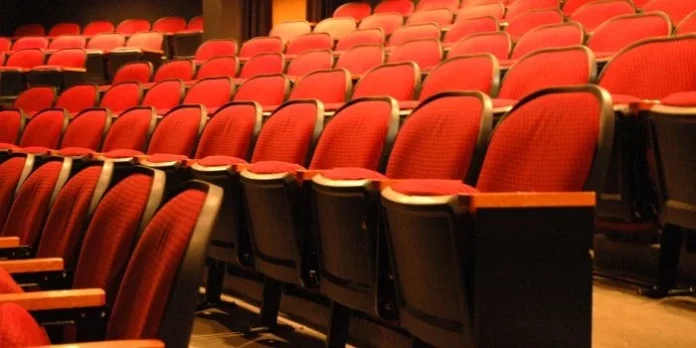Internationally acclaimed cellist Johannes Moser gave unrestricted, glorious voice to the Andrea Guarneri 17th Century cello in his arms at Music in the Morning (MITM).
When Adrian Fung, the new Executive Artistic Director of MITM and an accomplished cellist himself, introduced Moser, he mentioned their mutual admiration for Yo-Yo Ma. Apparently, Moser’s colleagues are so impressed by his expertise that they’ve nicknamed him, Yo-Yo Mo. Certainly, the stage presence, interpretive skill and musical ability of “Mo” are on a par with those of Ma.
His program at the Vancouver Academy of Music opened with Sergei Prokofiev’s Adagio from his ballet Cinderella, Op.97. But first, Moser strode on to the stage and stared out at the audience. It was an inclusive gesture. He took each one of us in. Then he tilted his head toward his accompanist Chiharu Iinuma at the piano to signal that he was about to begin. He raised his bow and dramatically applied it to the body of the cello. We shivered. He had us in the palm of his hand.
The passion he expressed in Prokofiev’s Adagio provoked tears, as he led the way from joy to devastation and finally to peaceful resolution. True to Fung’s word in his introduction, Moser could sustain a note longer than most. His bow never seemed to leave the gut. He even sustained notes beyond Iinuma’s at the piano more than once.
He spoke not a word between the Adagio and the second item on his program, Claude Debussy’s Sonata – another roller coaster journey filled with deep but never sentimental emotion and constant variation. It would be hard to find a musician with more understanding of a composer and such an hypnotic presence.
According to his website, Moser is an outdoors-man who enjoys mountain-bike-riding and hiking. His clean cut good health and energy doubtless contribute to his stamina, strength and intense sensitivity.
Accolades are due too to Chiharu Iinuma whose playing blended perfectly with that of the maestro. Contrary to tradition, she was seated behind him rather than in his eye line. He cued her with his ear rather than his eye and when he didn’t, she’d note his direction from his body language.
They both left the stage after they finished Debussy’s Sonata. When they returned a few moments later, Moser spoke for the first time, and the outdoorsy Canadian side of him emerged. He explained that storytelling is an intrinsic part of the work of Prokofiev, Debussy and Johannes Brahms, the third composer to be celebrated in the concert, and how storytelling appeals to his own musical creativity.
He went on to tell how Brahms had been commissioned to write the final item on the program,
Sonata No. 1 in E minor, Op. 38, by a German doctor who was an amateur cellist of limited ability but unlimited wealth. When Brahms accompanied him on the piano for a performance of the piece, the doctor complained that he played too loudly. Brahms is reported to have replied, “I think that’s a good thing.”
While the audience laughed, Moser took his place once more and proceeded to excel, together with Iinuma, in bringing Brahms’s beautiful music to life, expressing tender, sometimes sensual, sometimes highly dramatic moments in tuneful harmony and heightened emotion. His entire body was engaged with the music and that engaged the entire audience.
Moser even treated us to an encore, Charles-Camille Saint-Saëns’s The Swan, played with feeling so exquisitely subtle and moving that Yo-Yo Ma could not have graced it more.
Johannes Moser (cello) with Chiharu Iinuma (piano) continues at the Vancouver Academy of Music (1270 Chestnut St, Vancouver) on March 14, and at Christ Church Cathedral (690 Burrard St, Vancouver) on March 15. Visit musicinthemorning.org for tickets and information.

